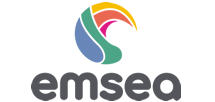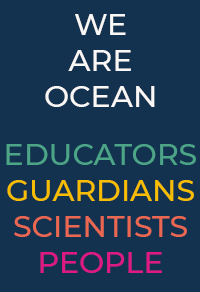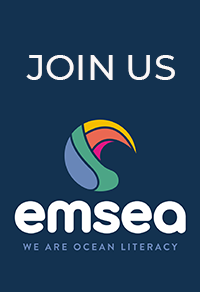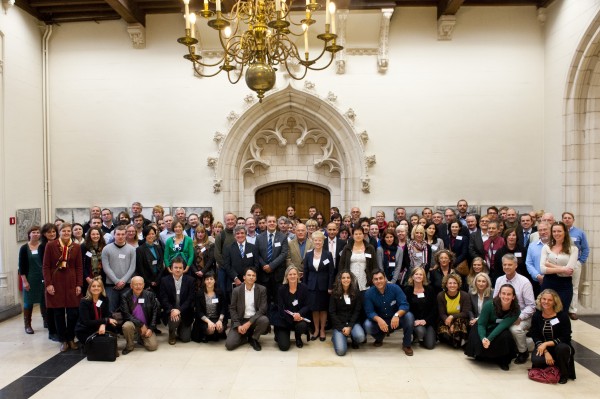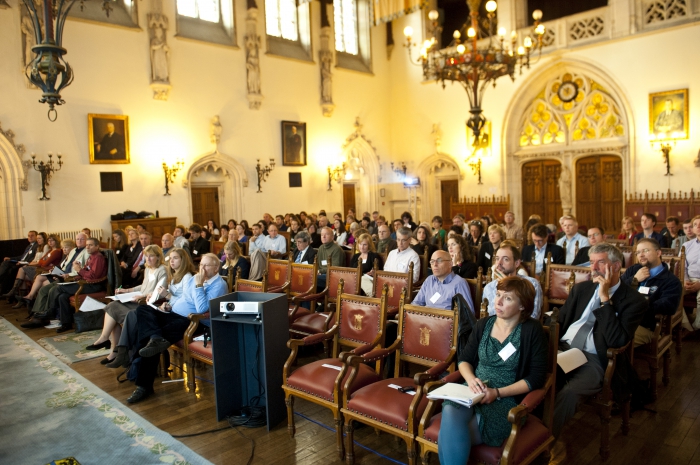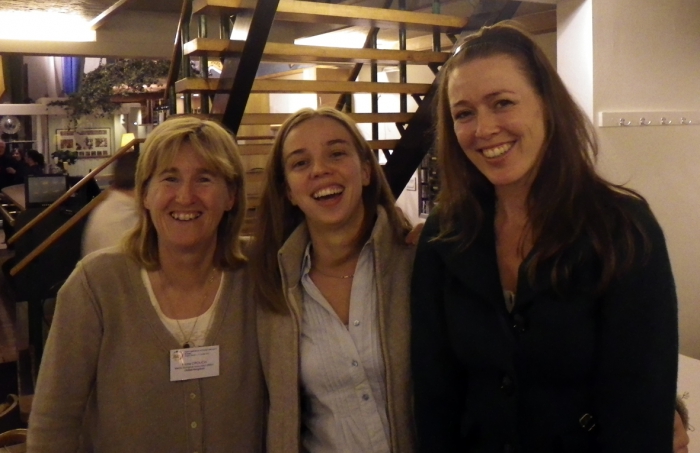The First Conference on Ocean Literacy in Europe was held on 9 October 2012 in Bruges, Belgium, and attended by 110 participants from 15 countries, all with a strong interest in ocean education and marine science communication.
This conference was a timely and important milestone in developing a more ocean literate society in Europe. Scientists, educators and policy makers gathered to discuss how education and ocean literacy can contribute to the future societal challenges related to the European seas and Atlantic Ocean. The conference also addressed the lack of ocean-related content in science education standards of the formal educational system(s) at the same time emphasizing how outreach projects and informal education efforts (e.g. public aquaria, science centres, museums, NGOs, media) are essential tools for more public involvement and active participation.
Organising committee:
- Vlaams Instituut voor de Zee (VLIZ)
- European Marine Board (EMB)
- European Marine Science Education Association (EMSEA)
- Marine Biological Association of the UK (MBA)
- University of Gothenburg
- National Marine Educators Association (NMEA)
- College of Exploration
Conclusions:
Please find herewith the most important conclusions of the conference and specific actions to advance ocean literacy in Europe:
-Collaboration between key actors: Efforts to upgrade and reinforce Ocean Literacy in Europe should be supported through both formal education and informal ways of learning. This will require a more effective collaboration between educators, scientists, industry, public authorities and NGOs in delivering tools and programmes to address the deficit in ocean knowledge and awareness.
-Future support in Horizon 2020: For such collaboration on ocean Literacy to gain traction, dedicated support for European Ocean Literacy initiatives will be essential. The conference participants called for the inclusion of Ocean Literacy as a priority on the agenda of Horizon 2020, the next EU funding programme for research and innovation. To support this process, the conference organizers will facilitate a working group and a wider consultation with marine scientific and educational institutions.
-Policy Relevance: A European public that is more informed and aware of the importance of seas and oceans for human health and well-being is essential for the successful implementation of the EU Integrated Maritime Policy and for EU efforts to deliver a sustainable maritime economy, meeting the Europe 2020 goals of smart, sustainable and inclusive growth.
-Advancing ocean literacy in Europe should be an inclusive, democratic and transparent process, without any institutional ownership. Institutions and individual scientists lent authority and credibility to the concept but don't require ownership of the intellectual property.
Future actions:
Concrete actions that need to be taken to make ocean knowledge/science accessible for all include:
- Identify and incorporate the essential principles & fundamental concepts of ocean science/knowledge into the educational curricula;
- In order to inform, educate and inspire future citizens of the “Blue Society”, strengthen the cooperation between all partners involved; this should be an interdisciplinary and holistic exercise including social, gender, economic, cultural and ethical dimensions;
- Create a closer contact between marine scientists and teachers (“Inspiring teachers is the quickest route to inspiring pupils”);
- Marine scientists can and should play a role (“science heroes”); however, the issue for marine scientists is less to train them on communicating marine science than to give them incentives to do this outreach (currently they are “punished” if they are distracted from their scientific work)
- Promote the use of visuals (documentaries, photos,…) as strong instruments in touching the public;
- We need to use new technologies (ocean observation techniques, multimedia, social media, etc.) where appropriate and adding value;
- Move from a one-way direction in communication towards a real dialogue; projects of citizen science that engage the public are a crucial element (e.g. “Mobilization and Mutual Learning” programmes);
- Conduct more base-line studies on what Europeans know and want to know about the ocean at present; these studies can serve as the basis for future impact assessments of actions taken within this perspective;
- Aquaria, museums and science centres already play an important role as ambassadors in developing a Blue Society; they should be supported in their efforts to incorporate more science into their programmes and activities;
- Marine research projects should set aside a dedicated budget for outreach; this must be underpinned with a strategic plan and a reflection on how to make this outreach effective and respond to societal needs, and to maximize the project impact;
- The development of a strong European vision on Ocean Literacy, integrated into European marine and maritime policy documents; a working group will be facilitated by the conference organizers and a wider consultation with marine scientific and educational institutions will be carried out, in order to provide the necessary advice to the European Commission.
Open invitation:
The organizing committee kindly invites all interested parties to actively participate in these efforts with feedback, comments and contributions to (one of) the above action points. Please join EMSEA to help achieve these actions.
Publication:
Copejans, E.; Seys, J. (Ed.) (2012). First conference on ocean literacy in Europe: Book of abstracts. Bruges, Belgium, 12 October 2012. VLIZ Special Publication, 60. Flanders Marine Institute (VLIZ): Oostende. vi, 45 pp., download
